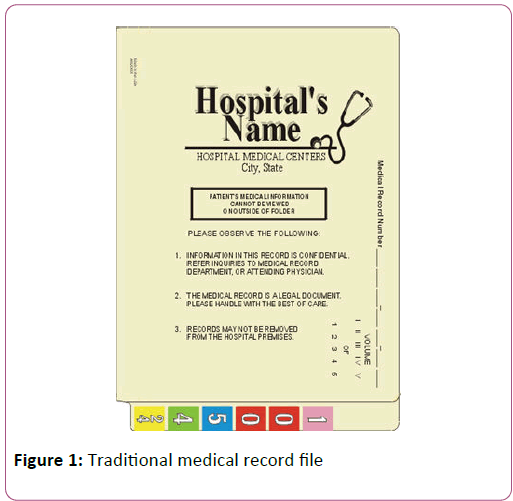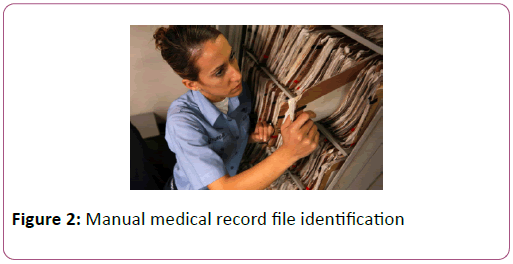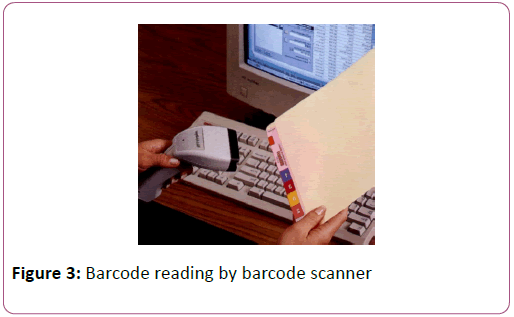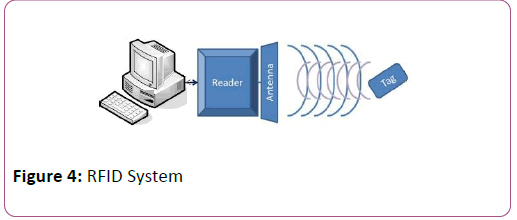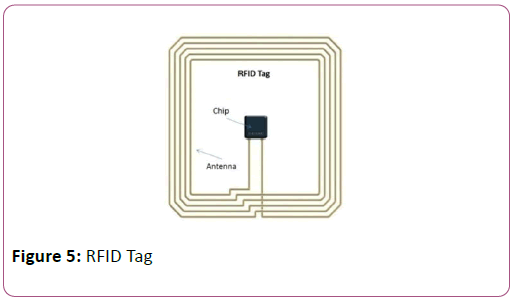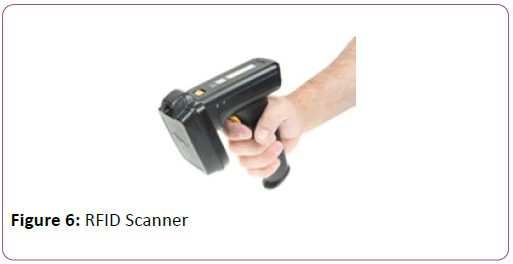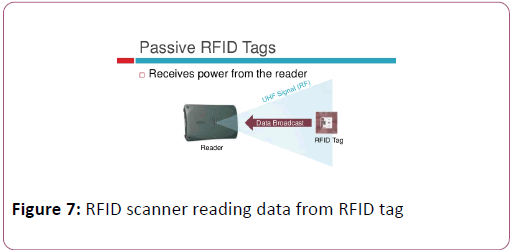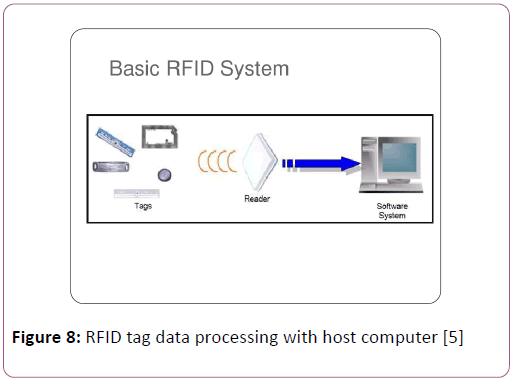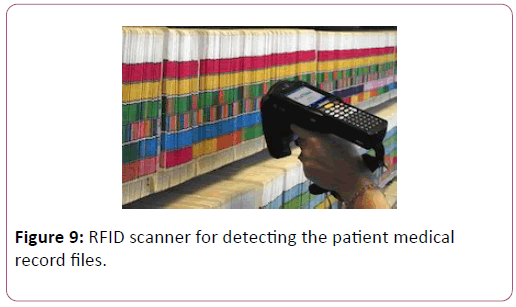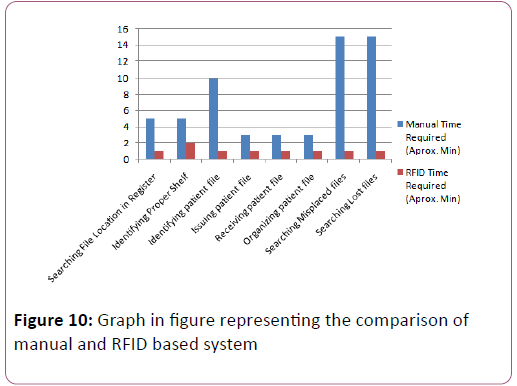ISSN : 2349-3917
American Journal of Computer Science and Information Technology
Using RFID Technology for Managing Patient Medical File
Mohammad Mizanur Rahman*
Department of Computer Science and Engineering, World University of Bangladesh, Dhaka, Bangladesh
- *Corresponding Author:
- Rahman MM
Department of Computer Science and Engineering, World University of Bangladesh, Dhaka, Bangladesh
Email: mrn_bd@yahoo.com
Received date: May 05, 2018; Accepted date: May 24, 2018; Published date: May 31 2018
Citation: Rahman MM (2018) Department of Computer Science and Engineering, World University of Bangladesh, Dhaka, Bangladesh. Am J Compt Sci Inform Technol Vol.6 No.2:24
Copyright: © 2018 Rahman MM. This is an open-access article distributed under the terms of the Creative Commons Attribution License, which permits unrestricted use, distribution, and reproduction in any medium, provided the original author and source are credited.
Abstract
Radio Frequency Identification (RFID) technology using radio frequencies for identifying objects in inventory, tracing cars in parking areas and identifying books in libraries. RFID technology also can be used in hospital medical record for managing patient medical Files. RFID is a very popular technology for identifying an item or object from nearest distance. RFID also can be integrated with Computer based medical record file tracking application system. RFID technology can be used to quickly and easily tracking and identifying a patient medical record file. RFID can replace the existing barcode system of identifying a patient file. This research was done for managing patient medical filse in govt. hospitals in Saudi Arabia.
Keywords
RFID Technology; RFID tag; RFID scanner; Patient medical file; HIPAA; EMR
Introduction
Medical Record department is a very important and secure place of a hospital where all the patient files are stored safely. Medical record department keeps all the files in an organized way so that it can be easily found whenever required. To ensure proper and efficient treatment for a patient it is very important to keep his/her medical history. Medical record file is the place where all the details of a patient treatment and diagnosis are stored. Medical records of a patient can be organized as Outpatient record, Inpatient record and Emergency record. Most widely used system of keeping medical record file in a physical file where all the patient document such as diagnosis, x-ray, treatment and investigation documents are stored in paper format. Patient medical records files are highly confidential. The Health Insurance Portability and Accountability Act (HIPAA) federal law set the standard of privacy for Medical record of a patient. Only valid doctor’s, authorized medical stuff, caregiver’s, payers, government can access the Patient medical record files if required.
Still most of the govt. hospitals in Saudi Arabia using Manual Medical Record system for identifying , issuing and returning patient medical files. RFID technology [1] can be used in medical record for modernizing medical record activities, reducing human labour, errors for file issuing and receiving, preventing file loosing etc.
Limitations in Manual Medical Record
Manual medical record system stores patient’s data inside a physical medical record file. Medical record files are manually organized, stored in a file rack, and search manually from the file rack. In manual medical record system organizing patient medical file is very difficult. Finding a patient medical record file is very clumsy (Figure 1). There are chances to make mistake. There are possibilities to keep the files in wrong place. Sending files in proper medical department and returning back the files into medical record also time consuming. Manual Medical record is generally error prone. Managing and organizing patient file properly require more labour and hard work by the medical record stuff. Figure 2 depicted the way of finding out a file from medical record file shelf.
Drawback of Using Barcode in Medical Record
Barcode also used in medical record to identify patient files. Barcode system can be integrated with computer based application system so that the file can be tracked using barcode. Barcode have some limitation which can hinder the way of efficient work in Medical Record system. Limitations of barcode system are given below,
• Barcode can be destroyed easily,
• Bad quality barcode ink or paper can make difficult to read the barcode. Barcode quality can hinder the file processing quickly.
• Barcode reader should be placed in proper position to read the barcode. Figure 3 showing the process of reading barcode from a medical record file.
• Barcode can be easily destroyed by water or any other liquid materials.
• Barcode scanners are more sensitive so the barcode should be clearly readable.
• Barcode scanner should be closer to the barcode for reading properly.
• Barcode reader can read only one barcode at a time.
Fundamentals of RFID Technology
Radio Frequency Identification (RFID) technology uses electromagnetic signals to identify or read data from a RFID Tag. RFID contains two components for identifying objects. (a) RFID tag (b) RFID Scanner. A computer system can be connected with RFID reader to verify the Tag data. Figure 4 showing the process of reading a RFID tag and verifying using computer system.
RFID tag contains a memory chip which can store an identification code to identify any object. RFID tag contains an antenna which is used to identify the RFID tag from nearest distance place based on the frequency of the tag (Figure 4) [2]. Using a passive RFID tag it is possible to identify the object from 20 feet distance. Passive RFID tag cost is very less and applicable to identify any items or objects.
RFID scanner used to identify the RFID tag.
RFID scanner uses a radio frequency to get response from the passive RFID tag Figure 5. Scanner first broadcast a radio frequency signal to identify the RFID tag (Figure 6). When the RFID tag get the signal then it sends back a respond signal to the RFID scanner (Figure 7) [3]. Figure 8 showing the process of data reading from RFID using RFID scanner.
Figure 8: RFID tag data processing with host computer [5]
RFID reader can be connected with a computer system to verify the data or process the data [4]. Figure 8 shows the way of connecting the RFID reader with computer system.
Methodology of Using RFID Technology in Medical Record
Traditional Medical Record System can use RFID Technology to make the file tracking task more easily. Traditional System generally uses barcode to track a medical record file (Figure 6). Limitation of the barcode is discussed in section III. Those drawbacks can be overcome using RFID technology. RFID tags can be used to find medical record file from the file rack more quickly and easily [5].
To identify a patient file medical record stuff can use RFID scanner for detecting the file [6,7]. Figure 9 showing the process of scanning RFID tag inside medical record file. To detect a misplaced file from a medical record is very difficult. There is no way to track a single file from an unknown shelf. Even barcode is used in all files also need to check for identifying a specific patient file. If RFID tag used instead of barcode it is very easy to track a patient file Figure 10. No need to open and check each and every file Figure 11 [8]. Just move the RFID scanner from a nearest distance if the file is available the reader can identify the proper file.
A Comparison data sheet of time requirement between manual file processing and RFID technology base file processing is given below.
RFID technology can be integrated with computer based medical record tracking application. So, the medical record file can be access, deliver to requested medical department and return back to medical record quickly and easily (Table 1). If the RFID tag identification number is registered in a computer based medical record file tracking system the file can be identify or track more quickly (Figure 10).
| Activity Description | Manual Time Requirement(Approx. min) | RFID Time Requirement (Approx. min) |
|---|---|---|
| Searching File Location in Register | 5 | 1 |
| Identifying Proper Shelf | 5 | 2 |
| Identifying patient file | 10 | 1 |
| Issuing patient file | 3 | 1 |
| Receiving patient file | 3 | 1 |
| Organizing patient file | 3 | 1 |
| Searching Misplaced files | 15 | 1 |
| Searching Lost files | 15 | 1 |
Table 1: Analysis data sheet for time requirement
If RFID scanner installed in every medical department doorways it is also possible to track a file from that particular location [9]. It is also possible to track a file if it is issued to wrong person or medical department by mistake. So, for using RFID technology in the medical record department required the following
Steps:
• Put/Apply RFID tag to all the medical record files.
• Register the RFID tag identification number in the computer based medical record tracking application system.
• Issue the medical record file using medical record tracking application system.
• Receive the medical record file from the specific medical department.
• Track the file using RFID scanner installed in the doorway.
• Return back and received the file in medical record department using file tracking application system.
• Organize the medical record files in proper shelf.
PROS and CONS of Using RFID Technology
There are many benefits of using RFID technology.
• RFID tag can read from nearest distance and not required to be positioned properly.
• Unique identification no can be stored in RFID tag chip.
• RFID scanner can read multiple tag simultaneously.
• Various types of scanner available to read RFID tag.
Besides more benefits of RFID there are some disadvantages also. RFID tag, scanner and other required devices are more expensive. Multiple RFID tag reading can have signal collision and lack of accuracy if the quality of RFID tag is not good enough. Sometime Electromagnetic interference can make problem for reading RFID properly and hinder the accuracy.
Acknowledgement
The research was done to find out an efficient way for quickly and easily managing medical record files in the govt. hospitals in Saudi Arabia. Manual processes are observed inside medical record department in King Saud Medical City, Riyadh for understanding the difficulties of medical record file managing. Suggested RFID technology can be useful in this scenario for reducating file management task in medical record.
Conclusion
RFID technology is very useful for medical record department. It makes easier to identify a medical record file. It can quickly identify a patient medical record file from a shelf. It reduces the labor to identify a medical record file if it is misplaced. It is easily identifiable if the file is issued to a wrong person or to wrong medical department. So, using RFID technology is very essential for medical record department for tracking, issuing and returning back patient’s medical record file.
References
- Arabe K (2002) The State of RFID: Move Over Bar Codes. Industrial Market Trends.
- Paul RN (2017) MTech. Avialable: https://www.instructables.com/id/Access-Control-Using-RFIDRC522-and-Atmega32-MCU/.
- Thompson N (2013) Neal Thompson of Maritz at MPITechCon on RFID, Technol.
- Serio C (2010) Emerging Technology - RFID & Human Tracking. Business, Technol.
- https://www.indiamart.com/curiousventure/rfid-file-tracking.html
- Aguilar A (2007) A Patient Identification System using RFID and IEEE 802.11b Wireless Networks, Master of Science Thesis Stockholm, Sweden.
- https://healthinformatics.wikispaces.com/RFID
- https://99designs.com/infographic-design/contests/infographic-rfid-file-tracking-system-505691
- Davis S (2004) Tagging along. RFID helps hospitals track assets and people. Health Facil Manege 17: 20-24.
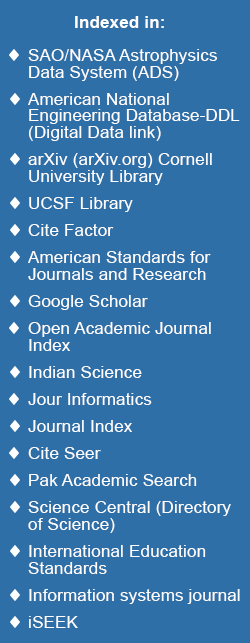
Open Access Journals
- Aquaculture & Veterinary Science
- Chemistry & Chemical Sciences
- Clinical Sciences
- Engineering
- General Science
- Genetics & Molecular Biology
- Health Care & Nursing
- Immunology & Microbiology
- Materials Science
- Mathematics & Physics
- Medical Sciences
- Neurology & Psychiatry
- Oncology & Cancer Science
- Pharmaceutical Sciences
